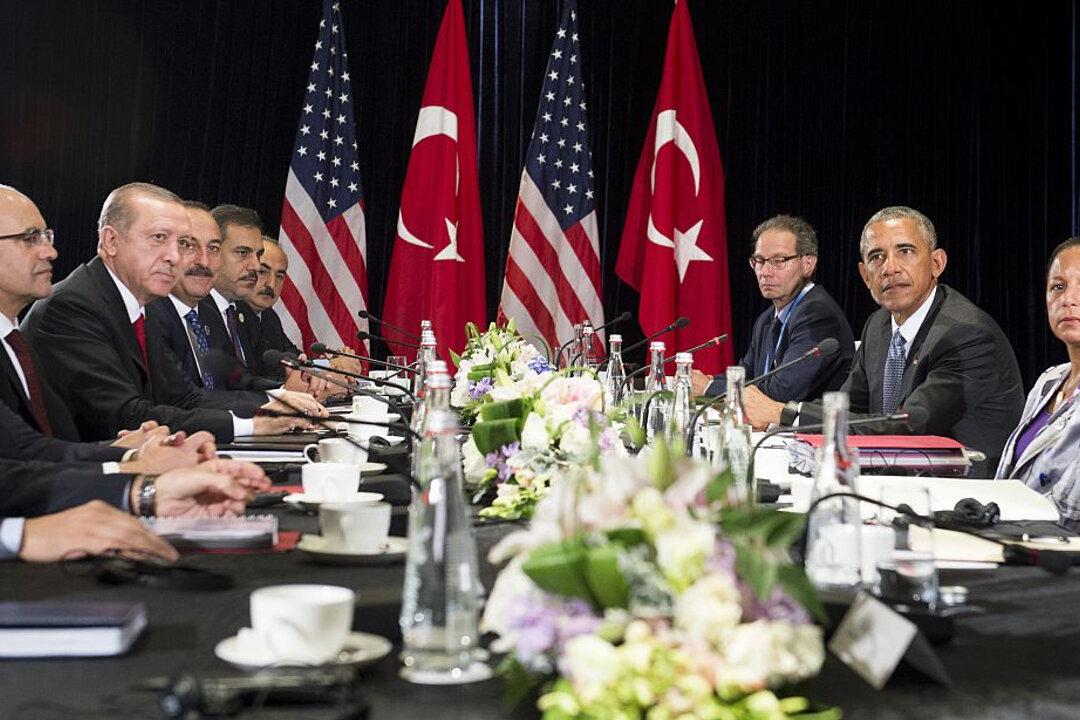The alliance between the United States and Kurdish-led forces set up in 2014 to take on ISIS in Syria has damaged the United States’ relationship with Turkey in a region threatened by Iranian and Russian hegemony, claims an insider to the Turkish leadership.
Erbil Gunasti, who formerly worked under Turkish President Recep Tayyip Erdogan and is the author of an upcoming book, “GameChanger,“ says that President Donald Trump distanced himself from the Kurdish People’s Protection Unit (YPG) in a bid to win over Erdogan.





